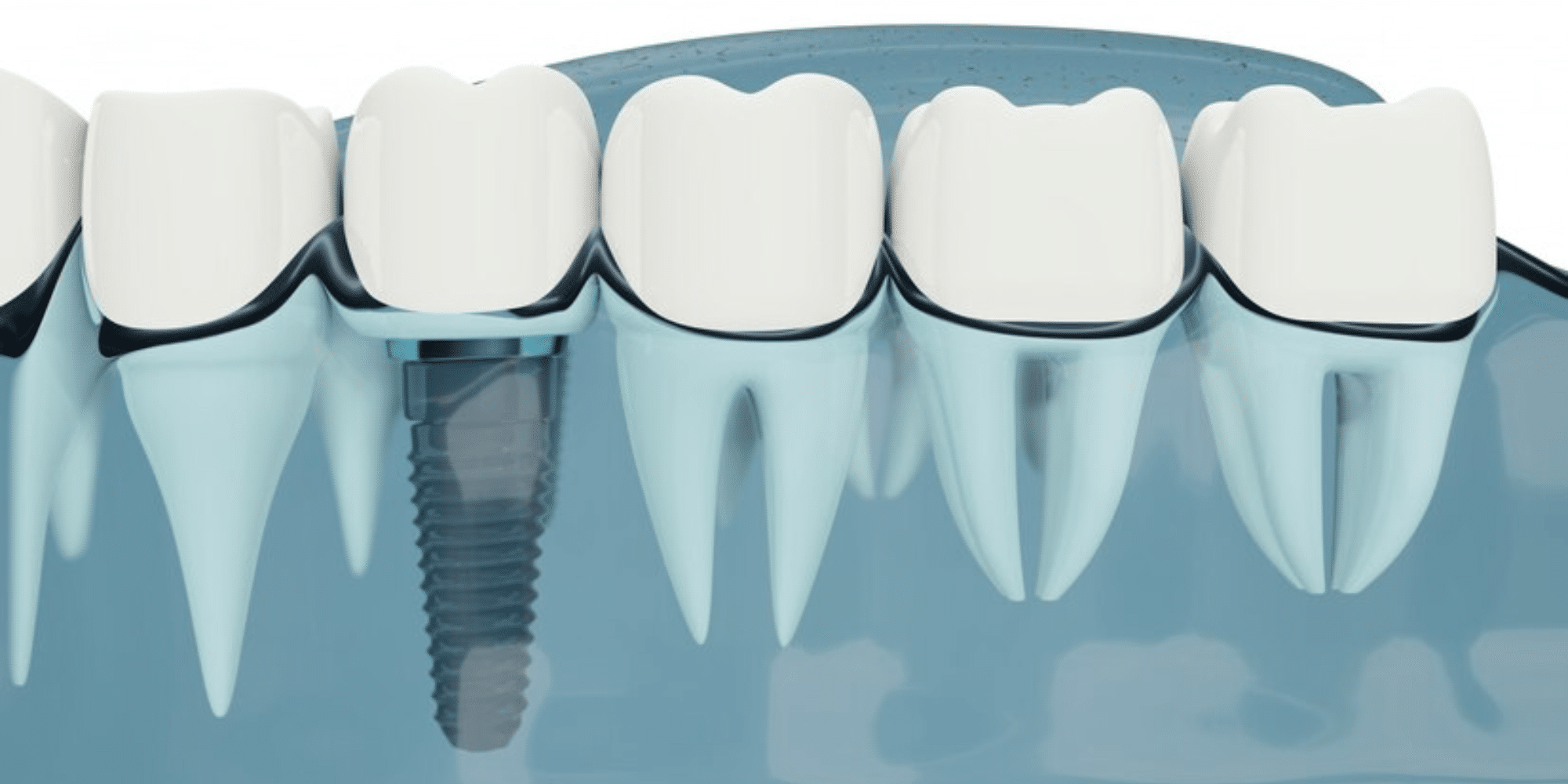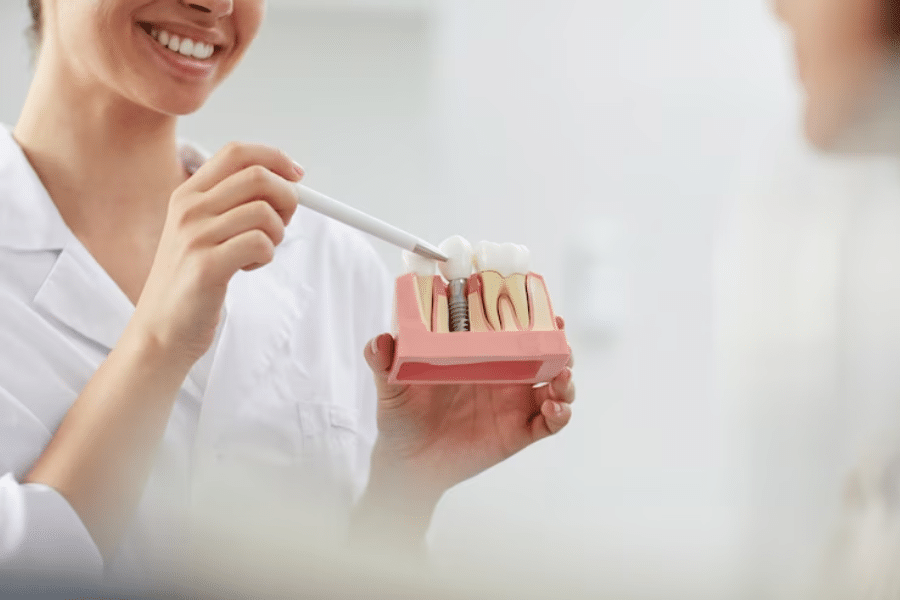Published on March 10, 2024

For many, a dazzling smile is a symbol of confidence and overall well-being. But what happens when missing teeth or damaged ones leave you yearning for a smile makeover? Dental implants emerge as a revolutionary solution, offering a permanent, natural-looking replacement for missing teeth. However, the question of cost often lingers – how much do dental implants really cost? While the initial price tag might seem daunting, it’s crucial to understand the long-term benefits they bring. This blog sheds light on the factors influencing dental implant costs and offers a transparent breakdown of the expenses involved.
Why Dental Implants are A Wise Choice for Your Smile?
Dental implants are widely considered the pinnacle of tooth replacement options. They surpass traditional bridges and dentures in numerous ways. As a result, it makes them a worthwhile investment for your oral health and overall well-being. Here’s a detailed look at the advantages they offer:

Unparalleled Functionality
Unlike dentures that can slip and cause discomfort, dental implants feel and function just like natural teeth. They allow you to bite, chew, and speak with confidence and ease. You won’t have to worry about limitations on your diet or slurred speech due to an ill-fitting replacement tooth.
Long-lasting Durability
Crafted from biocompatible titanium, dental implants are incredibly strong and resilient. Proper care can potentially last a lifetime. Besides, it eliminates the need for replacements every few years, as traditional methods do. This translates to significant cost savings in the long run.
Natural Esthetics
Dental implants are topped with custom-designed crowns that are meticulously crafted to match the color, size, and shape of your surrounding teeth. This creates a seamless and natural-looking smile that blends flawlessly with your existing dentition. Unlike dentures that can look bulky or unnatural, implants restore your smile’s aesthetics and boost your confidence.
Enhanced Oral Health
Missing teeth can lead to bone loss in the jawbone. This is because the jawbone lacks the stimulation it receives from the tooth root during chewing. Dental implants address this concern by functioning as artificial tooth roots. They stimulate the jawbone during chewing, helping to prevent bone loss and promoting overall oral health. This can have a positive impact on your long-term dental well-being.
Factors Affecting Dental Implant Costs
Dental implant pricing isn’t a one-size-fits-all situation. Several factors contribute to the overall cost. Also, it’s crucial to understand these variables before embarking on your implant journey. Here’s a breakdown of the key elements influencing the price:
Number of Implants Needed
This one’s pretty intuitive – the more implants you require, the higher the cost. Replacing a single tooth will be significantly less expensive than restoring multiple teeth or even an entire arch.
Implant Material
Titanium is the gold standard for implant material – it’s strong, biocompatible, and has a proven track record. However, some advanced implant materials might have a slightly higher price tag. Discuss the options with your dentist to find the best fit for your needs and budget.
Diagnostic Tests and Preparatory Work
Before implant placement, your dentist will likely recommend X-rays, CT scans, and other diagnostic tests. Doing this will help the dentist assess your jawbone health and plan the implant placement precisely. These tests are crucial for a successful outcome. Additionally, if your jawbone has deteriorated due to missing teeth for a long time, bone grafting might be necessary to create a strong foundation for the implant. Bone grafting is a separate procedure that adds to the overall cost.
Expertise and Location
The skill and experience of the dental surgeon performing the implant placement play a significant role in the cost. Highly qualified and experienced surgeons often command a premium. Additionally, implant procedures in metropolitan areas with a higher cost of living might be more expensive compared to rural locations.
Dental Crown and Abutment
The custom-made crown is the visible tooth-shaped part that goes on top of the implant. Also, the abutment, which connects the implant to the crown, contributes to the final cost. The materials used for these restorations (such as zirconia for crowns) and the dental lab creating them can influence the price. Discuss these options with your dentist to find a balance between aesthetics, durability, and cost.
Anesthesia and Sedation
To ensure your comfort during surgery, anesthesia or sedation options might be offered. These add to the overall cost but are essential for a smooth surgical experience.
Beyond the Initial Cost
While the upfront cost of dental implants may appear significant, it’s crucial to view them as an investment in your oral health and overall well-being for years to come. Here’s a deeper dive into why dental implants offer exceptional value that extends far beyond the initial price tag:
Durability and Reduced Long-Term Costs
In most cases, dentures and bridges require replacements every 5-15 years due to wear and tear. However, dental implants are designed to last a lifetime with proper care. This translates to significant cost savings in the long run. You’ll avoid the recurring expenses of new dentures or bridges, relining procedures, and potential repairs.
Enhanced Oral Health and Function
Dental implants function like natural tooth roots, stimulating the jawbone and preventing bone loss. This is a critical advantage over dentures and bridges, which can contribute to bone resorption in the jaw over time. A healthy jawbone provides a strong foundation for your facial structure and helps maintain a youthful appearance. Implants also allow for natural biting and chewing force, similar to your original teeth. This improved functionality not only enhances your ability to enjoy a wider variety of foods but also aids in proper digestion.
Dental implants are more than just a replacement tooth; they’re an investment in your oral health and overall well-being. The initial cost may seem daunting, but consider it a long-term solution that surpasses the financial aspect. By understanding the various factors that influence implant costs and discussing your options with a qualified dentist, you can make an informed decision. Remember, a healthy smile is an investment that pays dividends for years to come.
